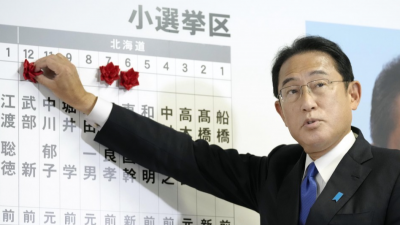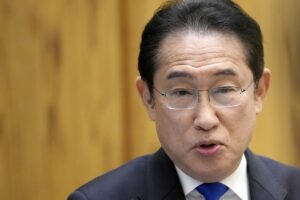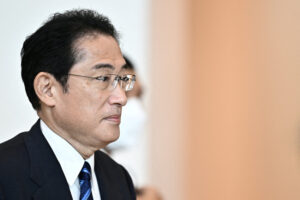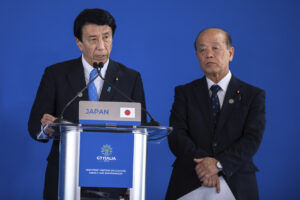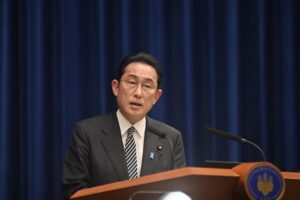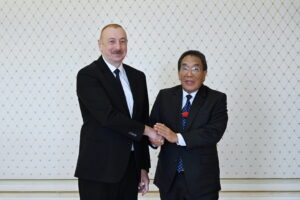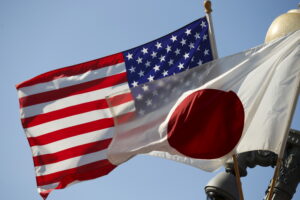Tokyo, 1 November, /AJMEDIA/
Japan’s ruling coalition retained a comfortable majority in the House of Representatives following Sunday’s general election, giving Prime Minister Fumio Kishida a mandate to implement his COVID-19, economic and national security agenda.
But Kishida’s Liberal Democratic Party saw its number of seats drop by 17 to 259, suffering a number of high-profile losses, with Akira Amari offering to resign as the party’s secretary general following his defeat to an opposition rival.
The LDP and its smaller partner Komeito secured 291 of the 465 seats in the powerful chamber of parliament, enough to effectively control all standing committees and steer the legislative process.
The main opposition Constitutional Democratic Party of Japan, which had criticized the LDP-led government’s pandemic response and vowed to reduce income disparities, also lost seats, down 14 to 96, despite fielding unified candidates through an agreement with other opposition groups including the Japanese Communist Party.
Meanwhile, the Japan Innovation Party, an opposition group that did not join the CDPJ-led alliance, won 41 seats, nearly quadruple the number it held prior to the election.
Kishida told reporters Monday morning he was “encouraged” by the ruling coalition’s performance and that he will “build on this result in running the government and the Diet.”
Regarding the fate of Amari, who lost in his single-member district in Kanagawa Prefecture but gained a seat through proportional representation, Kishida said he will make a decision after they discuss the matter. The secretary general post is the No. 2 in the LDP.
Parliament is set to convene a special session on Nov. 10 to confirm that Kishida will remain prime minister, with a Cabinet expected to remain largely unchanged to be launched the same day.
Facing his first major test since taking office on Oct. 4, Kishida had promised to spur economic growth while redistributing the spoils to the middle class under his vision of “new capitalism.”
The government will secure more hospital beds to treat COVID-19 patients in preparation for a possible sixth wave of infections and will draw up a stimulus package within the year to help people and businesses hit hard by the pandemic, he had said.
The lower house has special powers not given to the upper chamber, the House of Councillors, including having the final say in electing the prime minister, passing state budgets and ratifying international treaties.
In addition to deciding whether Kishida would gain a public mandate, the election was also seen partly as a referendum on nearly nine years of LDP-led government under Kishida’s predecessors, Shinzo Abe and Yoshihide Suga.
The CDPJ and its allies argued the government has botched its COVID-19 response, and that the Abenomics policy mix has only served to widen income disparities by boosting corporate earnings and share prices while failing to achieve higher wages.
But voters appeared to choose the stability of an LDP-led government over change, reducing the risk of Kishida becoming a “revolving door” prime minister of the type Japan experienced from 2006 to 2012.
The CDPJ also saw a number of notable defeats in single-member districts, including heavyweight Ichiro Ozawa in Iwate Prefecture, who secured a seat through proportional representation, and deputy leader Kiyomi Tsujimoto, who failed to even gain a seat under proportional representation.
The poor showing came despite the CDPJ allying with the JCP and other opposition parties to get behind the same candidates in more than 200 competitive constituencies.
“I’m very sorry that we lost seats and feel apologetic for that,” CDPJ leader Yukio Edano told reporters on Monday.
The opposition parties called for lowering the consumption tax to lessen the burden on low- and middle-class households, allow married couples to take separate surnames and recognize same-sex marriage. They also argued for abandoning nuclear energy in favor of renewable energy to reduce carbon emissions.
The ruling coalition, meanwhile, criticized the CDPJ and its allies for banding together despite their differing stances on foreign and security policies, saying such discrepancies make them unfit to govern.
The CDPJ supports the Japan-U.S. alliance while the JCP calls for abolishing the 1960 security treaty between Tokyo and Washington — a scenario that would please China, Russia and North Korea.
The LDP aims to double defense spending to around 2 percent of gross domestic product to deal with Beijing’s military buildup and missile threats from Pyongyang, and says it will consider acquiring the capability to launch strikes on enemy bases as part of efforts to boost deterrence.
Of the lower house seats, 289 were decided in single-member constituencies under a first-past-the-post system. Another 176 were filled by proportional representation, in which parties are awarded seats based on how many votes they get in 11 regional blocks.
An estimated 55.93 percent of eligible voters cast ballots, according to data collected by Kyodo News, which would be the third worst turnout for a general election in the postwar era. A record-low 1,051 candidates ran, fewer than the previous low of 1,131 in 2005.

